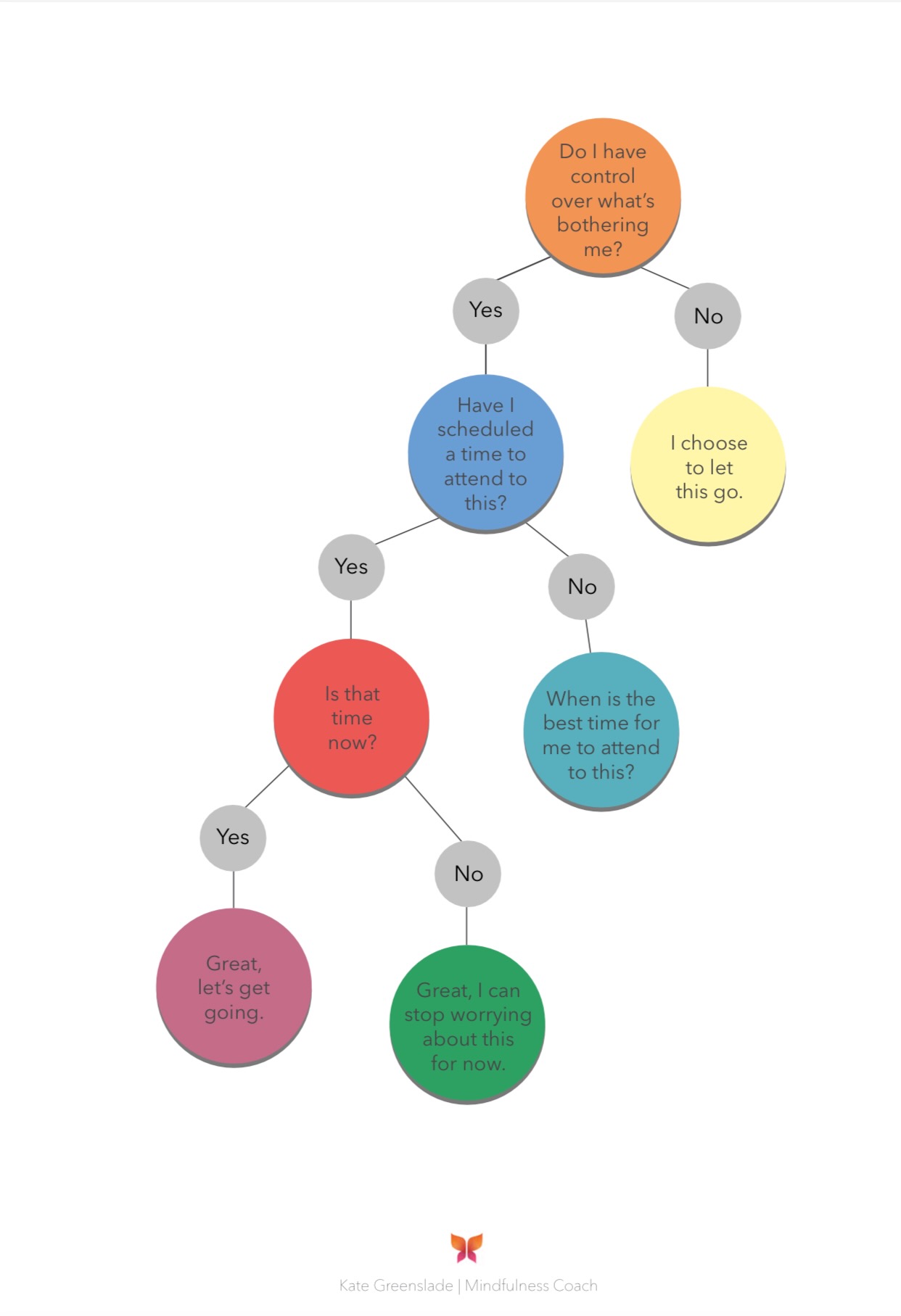Staying Grounded When Business Feels Uncertain
Nov 02, 2025
Running a business is FULL of unknowns. There are days when everything feels clear and flowing, and there are others when you’re second guessing every decision and wondering how it will all turn out.
Uncertainty is one of the hardest things to live with as a solpreneur or entrepreneur. It can be uncomfortable, unsettling and sometimes paralysing. But it’s also totally unavoidable. Particularly in the world we’re living in right now.
In our Master Your Mind session this month, we explored how to build a healthier relationship with uncertainty so it doesn’t run the show. We can’t control the world around us, but we can learn how to manage our internal response to change, doubt, and fear.
The goal isn’t to eliminate uncertainty. It’s to increase our capacity to meet it. Calmly, wisely and with more self compassion.
Why this work matters
If you’ve ever found yourself procrastinating, overthinking, or endlessly worrying about what might happen next in your business, you’re not alone.
When we feel uncertain our mind can spiral. We start imagining those dreaded worst case scenarios. We doubt ourselves, or try to control every detail to avoid making a mistake. It’s exhausting.
The problem isn’t uncertainty itself. It’s our relationship with it.
Without a healthy way to manage uncertainty, it’s easy to fall into cycles of burnout, indecision, and frustration. But when we learn to stay grounded, even when the future feels unclear, everything starts to shift.
You start to notice that you stop making decisions from a place of fear. You stop chasing certainty that doesn’t exist (our brain is so good at justifying a story to make us feel better, even if it’s not real). You start trusting yourself, building evidence from your actual experiences, you use your instincts, and build reliable processes.
Why your mind loves certainty
Our brains are designed to keep us safe. They’re always scanning for potential threats and predicting what might go wrong. Once upon a time, this kept us alive. But now, when most of us are physically safe, that same mechanism plays out in our business decisions.
It’s why we:
- Delay launching something new because we don’t feel “ready”
- Say yes to clients who aren’t a good fit because we fear turning others away
- Avoid checking our bank balance or setting clear goals
- Second guess every post, offer, or price change
- Overthink to the point of paralysis
The brain doesn’t like not knowing. It prefers certainty, even if that certainty keeps us stuck.
How uncertainty shows up in business
When you work for yourself in some capacity (freelance, self employed, solopreneur) uncertainty is everywhere. You don’t know how the next month will go, what opportunities will come, or when things will quieten down again.
Here are some of the most common ways it shows up:
- Procrastination – delaying decisions because you’re scared of making the wrong one.
- Overthinking – replaying scenarios in your head instead of taking action.
- People-pleasing – saying yes to work that doesn’t align because you fear scarcity.
- Financial avoidance – ignoring the numbers because they feel too uncomfortable.
- Constant pivoting – changing direction too soon instead of giving things time to grow.
- Inconsistent visibility – hiding or showing up sporadically because you fear judgement.
- Micromanaging – trying to control every detail to avoid surprises.
- Catastrophising – mentally rehearsing every possible disaster before you even begin.
- Comparison – using other people’s success as proof that you’re behind.
- Distrusting intuition – doubting your own instincts and looking for external validation.
These behaviours are common and very human. They’re not character flaws, they’re signs that your nervous system is doing its best to protect you.

The paradox of uncertainty
The strange thing is, we actually enjoy uncertainty in some areas of life.
When we start a new book, we don’t panic about not knowing the ending. We’re curious. When we begin a Netflix series, we’re excited to see how it unfolds. When we meet someone new, we don’t demand to know how the relationship will turn out.
We trust the process. We let it unfold.
But when it comes to business, uncertainty suddenly feels dangerous.
What if we applied the same mindset we bring to a good story to our work? Tapping into curiosity, openness, and presence.
What if we could see not knowing as a creative space rather than a threat?
That’s what this practice is really about. It’s shifting from fear to curiosity.
Building your capacity to stay with uncertainty
You can’t think your way out of uncertainty but you can feel your way through it.
In our live Master Your Mind session on uncertainty this month, we practised grounding ourselves in the body before tackling the thoughts. Because uncertainty is a physical experience as well as a mental one.
When the mind spirals, the body tightens. You might notice shallow breathing, tension in the chest, or a knot in the stomach. The first step is simply to notice this and allow it to be there.
Try this simple practice:
- Pause. Take a slow breath.
- Notice. What’s happening in your body right now?
- Acknowledge. Say to yourself, “This is uncomfortable, but I can be with it.”
- Soften. Let go of trying to fix or control the feeling.
When we stop fighting the discomfort, it begins to dissolve. Over time, you’ll find that uncertainty feels less like a threat and more like part of the landscape of running a business.
Learning from the past
Uncertainty lives in the future, but evidence lives in the past.
Think of times when you were worried about something that turned out fine. Maybe you thought a client would leave but they didn’t. Maybe you feared a launch would flop and it went better than expected.
Studies show that 8 out of 10 things we worry about never happen. And of the 2 that do, we handle them better than we thought we would.
That means you have evidence. Real proof that you can cope with uncertainty.
📝 Try this exercise
- Write down a situation from the past few months that caused you significant worry.
- Describe what you feared would happen.
- Then write what actually happened.
- Finally, note how you handled it.
- What have you taken from this exercise?
When you see the truth in front of you, it’s easier to trust yourself next time.
Practical tools for managing uncertainty
If you find yourself spiralling into “what if’s,” use this quick Worry Chart approach:
Step 1: Name the thought
Write down what you’re worried about.
Step 2: Question it
Ask:
* Is this true?
* What else could be true?
* Who am I without this thought?
Step 3: Reframe
See if there’s a more helpful perspective you can choose instead. How can you loosen the grip of fear? Notice when you meet your thoughts with curiosity instead of panic, they lose their power over you.
The Worry Chart
Another favourite tool I use a lot as a mindfulness coach is this simple flow chart. I actually created it at 3am one night when my mind was going round and round and wouldn't stop worrying.

The practice of letting go
One of the attitudes of mindfulness that’s most useful here is letting go.
Letting go in this sense means releasing your tight grip on how you think things should go.
Notice when your mind is grasping. When it’s trying to control, predict or cling to an outcome. Notice when it’s pushing away, resisting discomfort or uncertainty. Simply observe both.
When you let go of the need to control outcomes, you make space for flow, creativity, and new opportunities to appear. It’s a practice not a quick fix so take your time to embed this mindset into your day.
Setting the conditions for clarity
You can’t force clarity or certainty any more than you can force a seed to grow. But you can create the right conditions.
In business, that means grounding yourself, staying present, practising patience, and showing up for the work even when you don’t know how it will turn out.
When you set the conditions of consistent effort, self-awareness, and compassion, clarity naturally emerges. It’s not instant, but it is inevitable. Trust in the process.
A final reflection
Uncertainty is part of every entrepreneurial journey. It’s not something we can fix it’s something to befriend.
When you can stay with it, when you can breathe through it instead of fighting it, you unlock a different kind of confidence. One that’s rooted in trust and freedom.
You trust your ability to meet what comes.
You trust that you’ve done it before, and you can do it again.
You trust that your path will keep unfolding, one step at a time.
✨ ACCESS OUR ASK THE EXPERT SESSIONS LIVE
This Ask The Expert session is part of The Women Entrepreneurs Group membership.
Join us for live conversations on Zoom every month that help you run your business with more clarity, confidence, and connection.
Learn more here www.thewomenentrepreneursgroup.com
